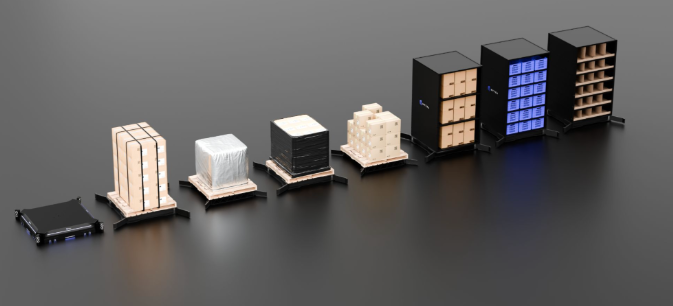The inefficiency of material flow in warehouses has always been a problem that plagues many companies. Traditional solutions are time-consuming, labor-intensive and costly. Mytra, a startup founded by former Tesla and Rivian executives, is working to solve this problem with AI-powered robotic systems. They adopted a unique modular design, reduced the number of parts, and focused more on software development, striving to create a simple, flexible, and scalable automation solution to significantly improve warehouse operation efficiency, reduce labor costs, and reduce environmental impact. Mytra’s goal is to perfectly combine AI technology with robotics to completely change the way warehouse materials are transported and stored.
Simple AI-powered robots have the potential to revolutionize the flow of materials in warehouses. Former Tesla Optimus project leader Chris Walti and former Rivian head Ahmad Baitalmal co-founded Mytra, a startup focused on warehouse automation. Mytra aims to solve the thorny problem of warehouse material flow with a simple, modular 3D robotic system.
"We took a radically different approach, reducing the part count and shifting the focus from hardware to software," Volti said in the statement. He noted that Mytra is the first to universally automate many labor-intensive, costly and complex material flows. solutions for the link. He believes that these links are like the "red blood cells" in industrial operations and are crucial.

Since 2022, Mytra has been operating in a low profile and has now received US$78 million in Series B financing. Investors include Greenoaks, Eclipse, Abstract Ventures and many other well-known venture capital companies.
So, what kind of solution does Mytra offer? Material flow, the transportation and storage of materials, products, and goods, is a large part of warehouse work. However, despite the continuous advancement of AI and robotics technology, many companies still rely on human forklifts to handle these tasks, which is time-consuming and not environmentally friendly. During his tenure at Tesla, Volti was deeply aware of the seriousness of this problem, which even almost caused the company's operations to be in trouble.
At the heart of Mytra is a modular cell-based matrix structure within which AI-powered robots can move, capable of lifting up to 3,000 pounds of cargo in any direction. This structure can be expanded at will, is extremely flexible, and has no moving parts, taking full advantage of modern software.
In addition, Mytra’s AI software can improve robot efficiency, optimize paths and manage inventory. By analyzing past data, the software can rationally arrange the storage locations of goods with high liquidity and those that will be needed soon, thereby greatly improving the operational efficiency of the warehouse.
Although Mytra has just been revealed, Volti said it has already reached preliminary cooperation with some Fortune 100 companies, including the supermarket Albertsons. "We are already conducting pilot projects, and more and more customers want to expand cooperation with us," he said. At the same time, Mytra plans to deploy multiple new projects among new customers by 2025.
Highlights:
Mytra offers modular robotic solutions designed to automate warehouse material flow.
The company has received US$78 million in financing and has partnered with Fortune 100 companies.
The system's robots can carry up to 3,000 pounds of goods, greatly improving warehouse operation efficiency.
The emergence of Mytra brings new possibilities to warehouse automation. Its modular design and powerful AI algorithm enable it to adapt to warehouses of various sizes and significantly improve operational efficiency. In the future, with the continuous development and application of Mytra technology, we will see the emergence of more efficient and intelligent warehouse logistics systems, creating greater value for enterprises.